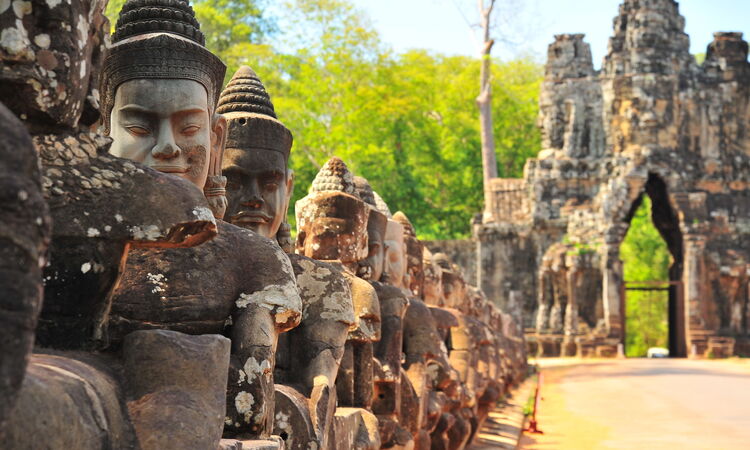Article content
5 February 2016 by Miranda Berliand
In accordance with the traditional Chinese calendar, countries across East Asia will be celebrating the new year on Friday 16th February 2018, and Vietnam is no exception. In fact, Tet, as it's known, is the most important celebration in Vietnamese culture with fireworks, dragon dances and, of course, the famous red envelopes eagerly anticipated by children the country over. Tet Nguyen Dan, to give the day its full name, translates as ‘Feast of the First Morning of the First Day’ in reference to the specialty food eaten over the festive period.
Food eaten during Vietnamese New Year
It's often believed to be good luck to forgo meat on Tet, with dishes featuring sticky rice particularly popular. Banh Chung, for example, consists of tightly packed sticky rice with a bean filling wrapped in leaves and steamed; the preparation of which can span days. There are also small delicacies such as pickled onion, cabbage and leeks along with Mut – dried candied fruits rarely eaten outside of Tet. In Vietnamese, to celebrate the holiday is to an Tet, literally translating as ‘eat Tet’ meaning it's an excellent time to travel for foodies.

Banh chung is typically eaten to celebrate Vietnamese New Year
Festive traditions
In the days leading up to Tet, families decorate and fastidiously clean their homes, parents buy new clothes for children and people flock to markets to stock up for the festivities. Believing that the period sets the tone for the rest of the year, towns are taken over with an infectious atmosphere of anticipation and generosity.
The celebrations then begin in earnest the evening before, with spectacular firework displays in large cities – such as those in Hanoi, Ho Chi Minh City (Saigon) and Da Nang – broadcast countrywide along with an address from the incumbent president. On the first day of Tet, families gather with children receiving red envelopes and public dragon dance displays put on. In Vietnamese culture, a special importance is attached to the first visitor to cross over a house’s threshold in the new year, as it’s believed that this determines the household’s fortunes for the year. In the subsequent days both paternal and maternal families are visited, along with visits to friends and teachers who hold a revered position in Vietnamese society.

Celebrations are vibrant and allow for a real insight into Vietnamese culture
Thinking of travelling for Tet?
In terms of travelling during Tet, there are a few things that you should bear in mind. As people return home to spend time with their families, transport is often fully booked so be sure to plan your journey well in advance. Similarly, museums, restaurants and shops will be closed for the first few days of the new year. However, you can expect to have otherwise crowded attractions, such as Hanoi’s Old Quarter and the famed sands of Mui Ne, all to yourself. You’ll also be treated to food only found at this time of the year and favourable prices from vendors looking to start the new year off well.








